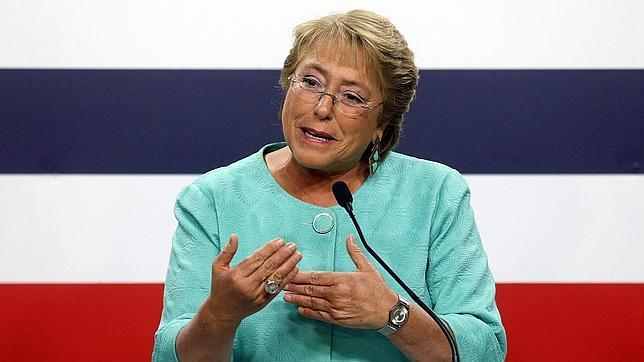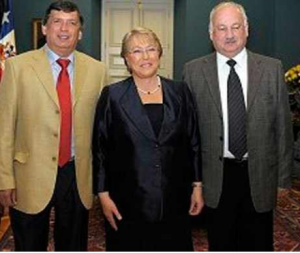
Bachelet ponders communist presence in her cabinet
Suspense continues to build up in Chile over President-elect Michelle Bachelet’s choice of a Communist Party member — or members — to her cabinet. The Communist Party has not been represented in La Moneda palace since the administration of the late Salvador Allende, 40 years ago.

[For background, read “Bachelet upholds right...” (Dec. 19) and “Chilean Communist Party is ready…” (Dec. 22) in Progreso Weekly.]
Bachelet, who will assume her post on March 11, spent all of last week conferring with advisers and associates about possible nominees.
She was expected to disclose her choices on Friday the 17th or Monday the 20th, but an announcement from the Netherlands might prompt her to postpone that disclosure. The World Court at The Hague is about to rule on a maritime boundary dispute between Chile and Peru, and the ruling could steal the thunder from Bachelet’s announcement.
Over the weekend, the Communist Party (CP) and the Christian Democratic Party (CDP) — members of the New Majority coalition that carried Bachelet to the presidency — signed an accord that set down their commonalities and differences.
Among the predictable points of agreement, such as the acknowledgment of the separation of powers, the need for “tolerance, pluralism and brotherhood” and “a total respect for human rights,” the two parties specified three levels of consensus that, they said, don’t imply unanimity but are “essential to a democracy.”
They are “a consensus regarding the minimum values that should be shared in a society; a consensus regarding the rules of the game, whose essential rule is a rejection to any form of violence as a tool of political action in a democratic society, and a consensus regarding specific public policies.”
At an outdoor picnic in Santiago on Saturday (Jan. 11), sponsored by the Communist Party, the party chairman, Guillermo Teillier, described the rapprochement between the communists and the Christian democrats as “unprecedented.”
“If Salvador Allende’s [political] journey in Chile was unprecedented, why couldn’t be a new government that brings Christian democrats and communists together also be unprecedented?” he asked.
Allende, a socialist, gained Chile’s presidency in 1970 as the candidate of the Popular Unity coalition. He won by only a plurality of votes and signed an accord with the CDP — a Statute of Constitutional Guarantees — to secure the Christian democrats’ support in Congress.
Allende’s first cabinet included three communists and five socialists. He was overthrown by a military coup on Sept. 11, 1973, and died the same day by his own hand.
Alberto Undurraga, vice chairman of the CDP, said at the weekend picnic that “we have come to give testimony about the Christian Democratic Party’s commitment to the New Majority, to the program to end inequality, and to the success of the government of President-elect Michelle Bachelet.”
Leaders of the Communist and Socialist parties keep insisting that they have not pressured Bachelet to name members of their parties to the cabinet. However, the Chilean newspaper El Día reported on Tuesday (Jan. 14) that the Socialist, Christian Democratic and Radical parties have already submitted names for “intendentes,” or regional governors.


